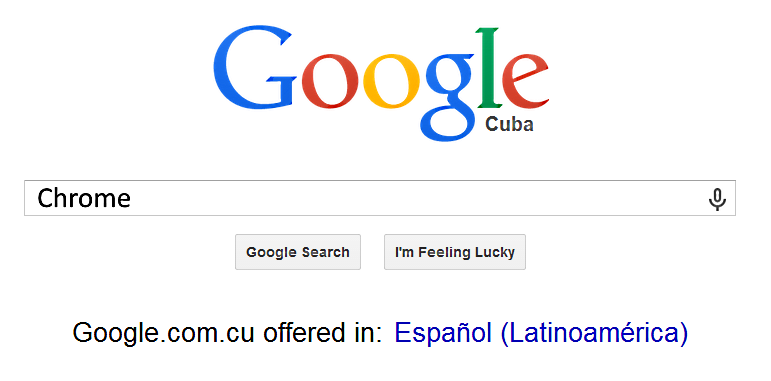By Javier Cabrera
As a result of the Paris attacks, many governments have put growing pressure on the technology companies to have “backdoors” in order to access users’ information without needing a judicial order. In the U.S., the debate is at its highest point, openly, with the citizens aware of the fight and the technology companies giving their opinions. Such is the case with Apple and others that have announced they won’t deliver users’ data for an increase in security, and the government isn’t taking it easily.
China also is trying to take advantage of the debate, although with a focus a lot more twisted and behind the backs of its citizens, wanting to compel by law all the technology companies to give them whatever information they request, and threatening grave consequences for the economy and the competition.
Recently the Cuban trolls attacked us in the article, “The Cuban Government is stealing your digital information,” saying that it’s something that happens in the whole world, forgetting the fact that citizens and companies are aware that backdoors have ended. In Cuba, everything is backdoor, since it’s the Government itself that constructs and manages technology security, preventing the development of independent companies and limiting access to the Internet.
There is a gmail.cu with email service. The Government would have to ask Google through a judge for the emails of a specified person, in a range of closed dates, with a formal accusation that wouldn’t be tied to crimes of thought or fabricated. This would limit much of the control they think they now have, and would leave in evidence the methods of State Security.
For that reason, Cuba spends between 3,000,000 and 5,000,000 dollars monthly, according to conservative estimates, to maintain Nauta.cu as a form of having total access to the correspondence of Cubans. In spite of the large cost, the service suffers “leaks” thanks to poor management. A gmail.cu is perfectly viable today with today’s infrastructure, at zero cost, and with a service that would never drop, break, be interrupted and would cover or exceed the expectations of a public that wants to use more technology. I repeat: It’s completely viable, but as the New York Times says,”It only lacks political will.”
To this we must add that everyone I know in Cuba has an alternative to Nauta for matters in which they don’t want the Government sticking its nose. This strategy limits the real capacity of State Security’s spying but doesn’t lower the cost of Internet services, so desperate people have to use Nauta at moments of urgency. In the real world this is called “competitive barrier and unfair monopoly.”
The Socialist Government Technology is defined in Cuba by the lack of clarity about who has access to your data, the non-existence of defense mechanisms, the lack of transparency in the system, the very high cost and very poor service…with citizens looking for real alternatives to break the control and show how stupid and unnecessary the whole system is.
We young Cubans must continue to push. We can’t remain indifferent, conforming to what they give and sell us as technology. We are paying for the service; we can make demands. Let’s fight in 2016 for a REAL INTERNET, independent of the Government. We have the right, as does the rest of the world, to discuss our security and to know who has access to our communications. Let’s demand full respect for our privacy and leave it clear that no captain, lieutenant or mercenary of the UCI* can give a damn about what we say with our family or friends.
*University of Informatic Sciences
Translated by Regina Anavy

